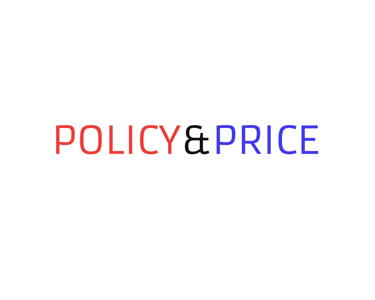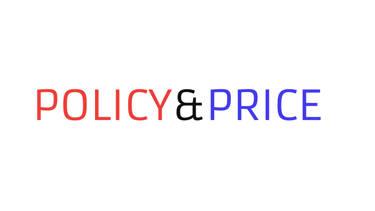The Importance of Context in Applied Economics
A deep insight into why economists must continue to rely on context alongside models.
Oliver Bennett
11/7/20255 min read
Dani Rodrik stated that “In Economics, context is all. It’s one of my favourite ideas and so many analysts have stood by Rodrik and those that came before him, putting an emphasis on the importance of context in applying economic theory effectively. This is where people’s lives improve and the potential of economics to make real change in the real-world boosts exponentially. But, why? Well, as a science, Economics is built on the back of economic models - frameworks that mathematically formalise the relationships between key variables such as prices and output, as well as others. Using such models, economists look to predict behaviour in markets and society, allowing them to decide which policies may be the best for a nation, state, etc. So, economists have these models available to them, then they just have to pick the correct ones. However, if they choose the incorrect model, they’re stuck from the beginning. It has to be the right model based on the context of the economy and the issue that the economists are looking to tackle, otherwise it’s like giving a patient a wrong diagnosis — no matter how well the patient follows the treatment plan, it won’t make them better. For example, a tax cut might fuel much needed consumption led growth in one country but lead to severe demand-pull inflation in another - increasing the cost of living.
The issue with just “picking any old model” if you will, is that they often simplify a multifaceted reality with set assumptions such as perfect competition and consumers being rational - most of these assumptions don’t hold in the real world. For instance, consumers act irrationally all the time, yet many traditional models ignore such complex behaviours. Furthermore, standard economic theory often makes assumptions of the functions of macroeconomic tools without considering the economic context of a situation, so deciding which model to apply is vital to applied economics. Take monetary policy as an approach to combat inflation, standard economic theory would suggest raising interest rates as an effective mechanism to reduce inflation, but what if the inflation was caused by a supply shock? Then such a policy, and such an approach to applied economics would be completely obsolete as contractionary monetary policy is usually implemented to approach demand side issues.
I’d also like to clarify that it is certainly not economic models that are the problem - they are incredibly useful tools for predicting economic outcomes and behaviour. However, I am just noting the importance of context as a vital consideration when deciding between models. Models don’t have to be perfect, they can have assumptions present, but if such assumptions are a complete contradiction to the real world in which we are applying the model to, well then that is an issue. I’d highly recommend readers take a look at Dani Rodrik’s book, "Economic Rules", where he explains why models don’t have to be super complex (in the way that human behaviour is) and why their still incredibly useful despite the latter - but their usefulness lies in their compatibility with the context of a situation and potential economic crisis, which is why (and I’m sorry to bang on about it), model selection is so important.
Moving away from models for a moment and swiftly shifting to the general importance of context in economics. Context is complicated. If we keep it simple and look at the context of a nation when applying policy to that nation’s economy, as our baseline - it stays complicated, but becomes a tad easier to break down. It’s not just institutional, while the monetary and fiscal policy, as well as the legal structures a country has are vital to understanding their economy, it is often just as important to look at the cultural, historical, and geopolitical context (as well as other types). Returning to interest rates, let's say a country really does have a demand side issue, they need some strong consumption led growth to boost their economy - cutting interest rates may not be effective, if, culturally, the individuals within the society of that nation, are naturally big savers because that has been in the roots of their culture for years. Individuals in said nations would probably not be deterred from a lower interest rate in their saving as this would likely be something they do anyway, rather than spend, which is what the policy aims foster. Switzerland has an average household savings rate of 18-20%, meanwhile, the United States average household savings rate sits at 3-5%. So, what may be a great policy to fuel consumption in the USA, may not work so well in Switzerland, for instance.
Therefore, without context in the way we approach applying standard economic theory (which is great and has worked well in so many cases), applied economics risks becoming a “one size fits all” approach, and any economist knows there is not one true answer when approaching every single economy. Context bridges the gap between the realities of human life (spending patterns, culture, and personal priorities) within a nation/economy, and the abstract models and mathematics that economists rely on to create an impactful approach that results in effective applied economics. Therefore, the consequences of ignoring context in policy making and the application of economic theory is that predictions end up being misguided and policies negatively impact the very people they looked to help.
Many analysts have pointed towards Greece’s austerity measures as a good example of ignoring context in policymaking. Spiralling debt crisis in Greece after 2008 financial crisis led to Greece being bailed out by the European Commission, the ECB and the IMF - but on the condition that Greece would implement strict austerity measures. In theory, this made sense as standard economic models would signal that a reduction in the budget deficit would stabilise Greece’s economy and hopefully build back the trust in Greece that markets had lost. However, the context of their economy was that it was a country in a deep recession, unemployment was through the roof, and most of the economic activity was household spending and tourism, which are both highly affected by spending cuts. Some bigger export-driven economies such as Germany could depend on selling goods abroad to make up for weak domestic consumption but this was simply not the case for Greece. As a result, austerity ultimately triggered this downwards spiral, where public sector layoffs and tax hikes reduced disposable income across the nation. GDP fell by 25% in the next 8 years, debt-to-GDP ratio worsened and in 2012 unemployment climbed over 25%.
The theory that a reduced government budget can be beneficial to an economy isn’t incorrect - it can work, but it cannot be applied everywhere, different economic needs require different solutions. That’s why understanding context is so important. Also, just an additional note, when context is ignored and we see ineffective and damaging policy such as the above, public trust in economics declines. Which emphasises an even greater need to uphold the reputation of our great science by taking the time to use the remarkable models available to us and apply theory correctly - using context as a tool.
I stress the need for context in economics, but it is important to note that it is actively happening, and economists are doing a great job as modern economics becomes increasingly contextual. For example, modern day economists recognise that fields such as behavioural economic have shown that consumers are irrational and data science has allowed researchers to test how policies work in the context of different economies rather than taking a one size fits all approach. The future of applied economics is exciting, as economists have been drawing insights from psychology, sociology and political science to understand economies as deeply as possible. Connecting models to context is where applied economics can be effective and has been effective many times in the past. The most pressing economic issues of the day therefore must be approached with a context dependent, data dependent, mindset, before the essential application of models are then carried out.
Economic Analysis. Political Analysis. Insightful Analysis.
Explore political and economic affairs with us.
© 2025. All rights reserved.


